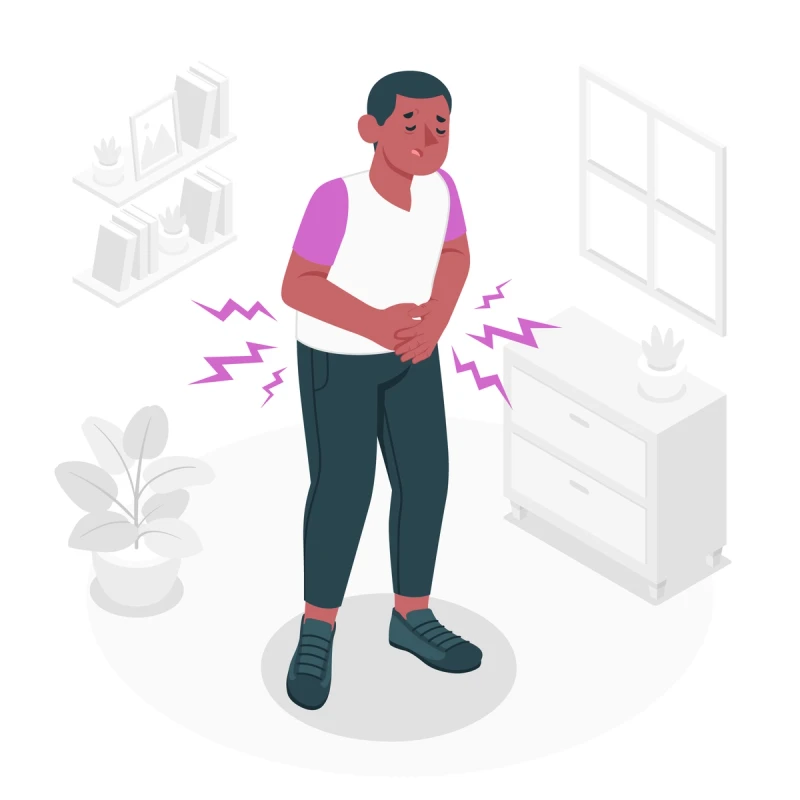
Managing Bloating with IBS

Bloating is an uncomfortable condition that many individuals suffering from Irritable Bowel Syndrome (IBS) are all too familiar with. While everyone experiences occasional bloating, if you find yourself facing it frequently and it's impacting your quality of life, it's time to take action.
In this article, we'll explore what bloating is, its potential causes, and how you can tackle it using the research-based low FODMAP diet.
Understanding bloating
Bloating entails an unpleasant feeling of increased abdominal volume, often giving the sensation that your stomach is about to burst. This experience can range from being painful to merely uncomfortable and bothersome. Perhaps you feel an urge to pass gas constantly, without finding relief. For those with IBS, bloating frequently accompanies other symptoms such as increased gas production, abdominal pain, and changes in bowel patterns.

Possible Causes of Bloating in IBS:
- FODMAPs: Fermentable Oligosaccharides, Disaccharides, Monosaccharides, and Polyols – better known as FODMAPs – are a group of carbohydrates that many people with IBS struggle to digest. These carbohydrates can attract water and fermentation bacteria in the intestines, resulting in bloating, gas, and other IBS symptoms.
- Oversensitive Gut: Individuals with IBS have a gut that's more sensitive to stimuli, including food. Even small amounts of food that wouldn't typically cause problems can lead to bloating and discomfort.
- Digestive Dysfunction: People with IBS might experience a form of digestive dysfunction where food moves through the digestive tract either too slowly or too quickly. This can contribute to bloating.
How Can the Low FODMAP Diet Help?
The low FODMAP diet involves reducing the intake of foods high in FODMAPs. By limiting these carbohydrates in your diet, you can potentially reduce IBS symptoms, including bloating. Here are the steps to implementing this diet:
1. Elimination Phase: Start by eliminating high-FODMAP foods from your diet for a specific period, usually 2-6 weeks. The goal of this phase is to become symptom-free. You can find a comprehensive list of high-FODMAP foods in the Noba app. This includes items like wheat, onions, garlic, legumes, certain fruits, and vegetables. Many processed products also contain hidden FODMAPs, which the app can help you identify.
2. Reintroduction Phase: After achieving symptom relief, gradually reintroduce FODMAPs – one group at a time. This will help you identify which specific FODMAPs trigger your symptoms. Utilizing Noba's diary feature can be helpful in this phase, allowing you to log food intake, bowel patterns, and symptoms.
3. Personalized Long-Term Diet: Based on the reintroduction phase, adapt your diet to include foods that your stomach tolerates well and exclude your major triggers.

Other Lifestyle Tips to Manage Bloating:
- Consume smaller, regular meals throughout the day to avoid overloading the digestive system.
- Avoid consuming large amounts of food rapidly, as this can lead to rapid gas formation and bloating.
- Stay hydrated by drinking plenty of water throughout the day to maintain healthy digestion.
- Avoid chewing gum and sucking on candy, as this can lead to swallowing air, worsening bloating.

Living with IBS can be challenging, especially when bloating and other symptoms interfere with your daily life. By exploring the low FODMAP diet and implementing some of these lifestyle tips, you can take control of your symptoms and improve your quality of life.
Always remember to consult a medical professional before making significant changes to your diet, especially if you have an existing medical condition.

